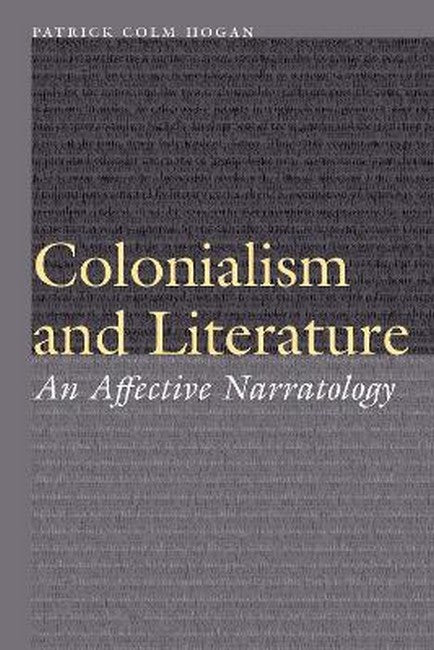Patrick Colm Hogan is Board of Trustees Distinguished Professor Emeritus, Department of English, Program in Comparative Literature and Cultural Studies, and Program in Cognitive Science, at the University of Connecticut. He is the author of more than twenty-five books, including Affective Narratology: The Emotional Structure of Stories (Nebraska, 2011) and Imagining Kashmir: Emplotment and Colonialism (Nebraska, 2016).
Request Academic Copy
Please copy the ISBN for submitting review copy form
Description
List of Illustrations Introduction: Imperialism and Its Stories 1. Colonialism, Emotions, and Narrative: Theoretical Principles 2. Idealized Sacrifice: PAdraic Pearse, Attachment Love, and the 1916 Easter Uprising 3. Ambivalent Sacrifice and Allegorical Love: Shame and Desire in Ngugi wa Thiong'o's A Grain of Wheat 4. Family Separation and Reunion: Attachment and Mirth in Yasujiro Ozu's Early Summer 5. Disfigured Heroism and the Possibility of Romance: War and Love in J. M. Coetzee's Waiting for the Barbarians 6. Allegory and the Heroic Epilogue: Guilt and Disfigured Genres in Margaret Atwood's Surfacing 7. Minor Genres: Revenge in Rabindranath Tagore's "Punishment," Crime in Abderrahmane Sissako's Bamako, and Seduction in Dinabandhu Mitra's The Indigo Planting Mirror 8. Afterword: A Note on the Psychology of Stories and the Psychology of Colonialism Source Acknowledgments Notes Bibliography Index
"With characteristic erudition and lucidity, Hogan examines how emotions often produced by postcolonial conditions serve as engines that drive certain kinds of prototype stories found across cultures. Hogan's work is exemplary affective narratology and will generate much future research."-Sue J. Kim, author of On Anger: Race, Cognition, Narrative "Hogan writes in a remarkably accessible way and develops arguments through easy-to-follow examples. He has quite a gift for distilling often highly specialized research into terms where its relevance to nonspecialists can readily be discerned. He also deftly interconnects multiple lines of interdisciplinary scholarship. Mastery of subject, accessibility, and sensible argument are admirably merged. It is hard to imagine anyone working in any of the three primary fields engaged here who would not enjoy and benefit from this work."-Donald R. Wehrs, author of Ethical Sense and Literary Significance: Deep Sociality and the Cultural Agency of Imaginative Discourse

